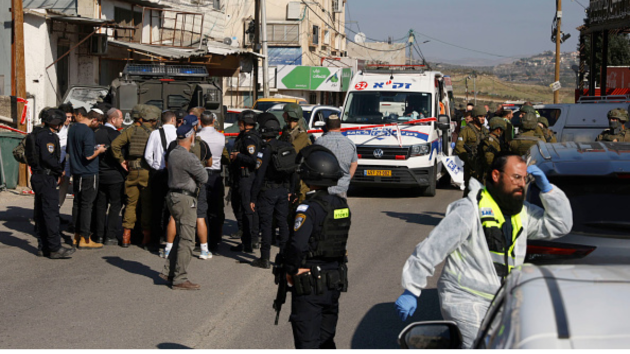Gaza residents say ‘there’s nowhere left to go’ amid Israel’s relentless bombing
Written by ABC Audio ALL RIGHTS RESERVED on December 9, 2023
(GAZA) — Muhammad Alyan said he and his family were forced to flee the northern Gaza Strip last month, heeding evacuation orders by the Israeli military. He said they left their home in Gaza City and traveled south on foot to Khan Yunis, some 15 miles away, where they sheltered in a school with scores of other displaced families.
But Khan Yunis, like other areas in southern Gaza where civilians were told to go, is no longer safe as the Israeli military expands its offensive across the entire 140-square-mile enclave.
“There’s nowhere left to go,” Alyan told ABC News on Dec. 5 as he and his family left Khan Yunis. “Two days ago, they dropped papers from the sky on Khan Yunis saying that we must evacuate and head to the south, meaning where should we go?”
Alyan and his family are among the more than 1.8 million people who are internally displaced in Gaza — about 80% of the population — amid Israel’s ongoing war against the territory’s militant rulers, Hamas, according to data from the United Nations. More than 17,000 people have been killed by Israeli forces there since the war began two months ago, according to figures released by Gaza’s Hamas-run Ministry of Health and the Hamas government media office.
“They want people to die,” Alyan said of the Israeli military’s additional evacuation orders. “What is happening to us is not war on the resistance, but a war on people, a war on citizens.”
It’s the latest outbreak of war between Israel and Hamas, sparked by an unprecedented incursion of Hamas militants and other Palestinian militant groups from Gaza into neighboring southern Israel on Oct. 7. More than 1,200 people were killed in the terror attack and over 200 others were taken hostage back to Gaza, according to numbers released by the Israel Defense Forces and the Israeli Prime Minister’s Office.
A seven-day truce at the end of last month saw a hostage-prisoner exchange between the sparring sides as well as the delivery of some humanitarian aid into war-torn Gaza. But since fighting resumed on Dec. 1, Israel has vowed to pursue Hamas wherever the militants are, bombing hundreds of targets each day in both the north and south of Gaza, with a particular focus on Khan Younis, according to the IDF. There are no air raid sirens or bomb shelters in the besieged territory.
Many of Gaza’s residents who had sought safety in Khan Younis have now moved to Rafah, about 6 miles away, which is as far south as they can go. But even areas there have been bombed by the IDF in recent days, officials said.
“Israeli forces’ bombardment is ongoing following another evacuation order to move people from Khan Younis into Rafah. The order created panic, fear and anxiety,” Philippe Lazzarini, commissioner-general of the U.N. Relief and Works Agency for Palestine Refugees in the Near East (UNRWA), said in a statement on Dec. 4. “We have said it repeatedly. We are saying it again. No place is safe in Gaza, whether in the south, or the southwest, whether in Rafah or in any unilaterally so-called ‘safe zone.'”
The IDF maintains it is only targeting Hamas and other militants in Gaza and alleges that Hamas deliberately shelters behind civilians, which the group denies.
Earlier this week, scores of people were seen traveling from Khan Younis to Rafah in cars, on horse-drawn carts and by foot, carrying as many belongings as they could from bags of clothes to mattresses.
“There is no safe area,” one man, who did not give his name, told ABC News on Dec. 5. “Wherever you go, there is bombing.”
Another fleeing resident, who also did not give his name, told ABC News: “I moved from Karama to Deir al-Balah to Khan Yunis and now, I’m going to Rafah and got nowhere after that.”
Some have chosen to stay behind in Khan Younis, knowing that they face the same risks wherever they go.
“I went to the market today to buy a bag of tomatoes and some vegetables for my family, but I did not find anything,” Hamza Ibrahim told ABC News on Dec. 5. “We die every day because there is no food. And if there is food, it will be many times more expensive than the previous price.”
“There is no safe place here, even in Rafah and Khan Younis, in the middle and from north to south,” he added. “We either stay in our house and die hungry, or go out and die by indiscriminate bombing.”
The city of Rafah is nestled along Gaza’s southern frontier with Egypt, which so far has not fully opened its border to fleeing Palestinians. Gaza is home to some 2.3 million Palestinians who have lived under a blockade imposed by Israel and supported by Egypt since Hamas, which the United States has designated a terrorist organization, came to power in 2007. Human rights organizations have long described the densely populated strip as the world’s largest open-air prison, due to Israel’s generalized ban on travel for Gaza residents as well as Egypt’s restrictive policies at its shared border.
Now, as Israel’s war rages on and Gaza’s already fragile health care system grapples with the mounting casualties, organizations are urging the international community to act. In a Dec. 6 letter to the 15-member U.N. Security Council, which has yet to adopt a resolution calling for a cease-fire between Israel and Hamas, U.N. Secretary-General Antonio Guterres warned the “situation is fast deteriorating into a catastrophe with potentially irreversible implications for Palestinians as a whole and for peace and security in the region.”
“Nowhere is safe in Gaza,” Guterres wrote.
Earlier in the war, Israeli aircraft dropped leaflets over northern Gaza urging civilians to evacuate and head south to safety. More leaflets have fallen over southern Gaza this week, but with some delivering a different message.
The leaflets, which the IDF confirmed it had distributed, were all written in Arabic and included the emblem of the IDF as well as a Star of David. Some that arrived in Khan Younis on Dec. 8 quoted a verse from the Quran: “Soul for a soul, eye for an eye.”
On Dec. 5, leaflets landed along the outskirts of Khan Younis in a graveyard where those killed in the war continue to be buried. Those leaflets cited another Quranic verse: “The flood took them as they were cruel.”
The gravedigger there, Yousef Tafash Abu Hatab, said he has never had to bury so many families at a time and people of all ages, from infants to the elderly. But even laying the dead to rest is considered a luxury when bombs are raining down from the sky.
“We do not want to build buildings — all buildings have been destroyed,” Hatab told ABC News. “We want to bury our dead.”
Copyright © 2023, ABC Audio. All rights reserved.






